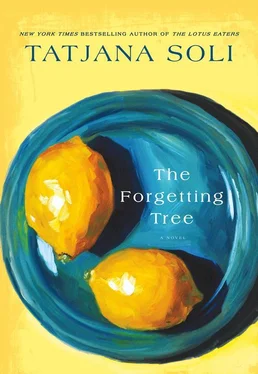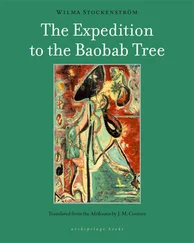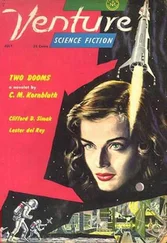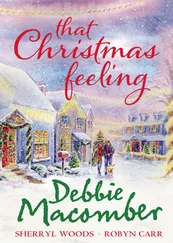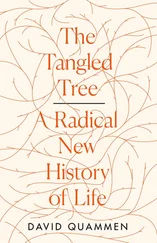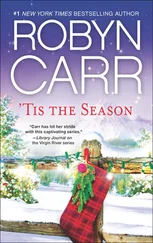The next day they drove a winding, potholed road from the gulf side to the Pacific side of the peninsula. East to west, the eternal search for renewal. But they were already at the end of west. Tired by the heat and the bumpy ride, they stopped at a turnout for lunch. Gwen and Lucy wandered away, and Claire settled down into medicated solitude, falling asleep in the shade of the cliffs. Now she slept endlessly — ten, eleven hours each day — and woke exhausted, longing for more.
Forster shook her awake. At first she mistook it for affection and felt a small gratitude inside her. Until he told her that Gwen came back without Lucy.
The next two hours were spent under the pounding sun, calling. Claire’s eyes burned, she tripped over cactus, her head spinning. Chest pounding so hard she thought she would keel over. Half-crazed, drugged, she cursed at the grotesque possibility that another child could be taken. Not knowing which direction to go, they returned to the car. Forster shuffled between it and the cliffs where Gwen sat crying as he tried to soothe her.
“What happened again?” he asked.
“I went ahead to check out a water hole. When I turned back, she was gone.”
“Was anyone else there? Any strangers?”
“No. I don’t think so. I didn’t see them.”
“Why didn’t you keep watch over her?” Claire yelled.
“Don’t,” Forster said.
“Then why didn’t you watch her?” Claire accused him.
“What were you doing?” he said. “Sleeping.” Only blame and venom left between them.
At last Lucy appeared in the distance, shimmering, unsteady, a mirage — sunburned, dusty, tearstained. Claire blinked, then blinked again, not wanting to trust anything until she was sure the girl was flesh.
“It’s her,” she whispered.
Together, they ran. Claire grabbed her, looked her up and down. “Are you okay? Are you hurt?”
“I’m fine,” Lucy said.
“Where were you?” Forster asked.
“We were scared.”
“I disappeared,” she said, smiling a sly grin. “Like Josh used to do. It was just a game. I was coming back—”
“Don’t ever do that,” Forster said.
“You’re ruining everything,” Gwen shouted. “Making Mom and Dad fight.” Gwen punched Lucy’s arm. “I wish you didn’t come back.”
“No,” Claire said. “You can’t say that.”
“We miss him, too,” Gwen said. “Not just you.”
Each of them like a jagged piece of glass to the other, unable to do anything but inflict damage. Three grief-worn female faces on the car trip home. Four wearied souls. Forster staring through the windshield, trying to forestall more harm. The trip no escape. Claire refused to pretend healing. Instead, the land reflected them back on themselves, and they could not bear up to the revelation. When they returned home, Forster moved into the guest room, the first step of his eventual leaving.
Other families survived tragedy. Perhaps it was a greater curse that they only appeared to remain intact, that they imploded, their collective outward gesture to become more polite, more considerate, distant as lone trees in a cleared forest, each grabbing a private circle of sun, together only in their solitude.
* * *
In the weeks after they returned from Mexico, an unheard-of thing happened in the orchard. Octavio was at a loss to explain: the leaves on the citrus turned a burnt yellow as if it were the changing of color during a New England fall. People drove by to take pictures of the outlandish sight. He assured the Baumsargs that he had taken the utmost care of the ranch while they were gone, personally supervising what he normally delegated to others. The leaves clung on for over a month, fresh and pliable but yellowed, then overnight every single one fell to the ground. A gold carpet upon which stood a barren stick forest. Not a sign of life on the trees, and Forster had the agriculture guys come over to take soil tests. There were guesses about mineral contaminants in the water table, a wind-borne fungus, unknown and unseen pests; the trees had gone dormant except for a strange thickening of the trunks. The bark turned hard as iron.
The orchard’s shock deeply moved Claire, as if the land itself had turned sentient, mirroring her belief that the only true love was the one tested, put under duress, stripped, stranded, and beaten. The land reached out to her, and she accepted. No one else understood the problem — she’d survived, her son had not.
The following spring, the trees resumed their growth.
Fifteen years later, the Baumsarg family, too, had grown impregnable outer shells.
With the passage of time, Josh had been her son for less time than he had not been. Untrue — he would always remain her son — yet one time had the weight of feathers and one had the weight of lead. Often, coming across her image unexpectedly in a mirror, she didn’t quite recognize herself. Who was this woman formed from sadness? Browned, wrinkled skin, weathered by the sun, and sharp, angular cheekbones. But she spent little time looking in mirrors, caught up in the management of the remaining 160 acres. Selling the larger share had been unbearable, but it was an amputee’s choice — severing one part to preserve the core. The only other choice was to lose the whole.
The truism that time healed all was just as false as it was true, but Claire had found her way back to life through the land. When she had shunned public life all those years ago, the ranch had provided extraordinary haven. The ranching life — the deep silences of the groves, its strict schedules, its routine, the narrowness of its concerns, the necessary attention to variables of weather, cycles of fruition and decay — provided a relief that nothing else could.
It had been a mixed lot of successes and failure. She had survived, the girls were grown up, but Forster and she had parted ways years before. Unlike her experience of healing, the land had turned against him — strange, foreign, resistant. It had driven him away.
* * *
So when in the doctor’s changing room, gossiping with other patients, drinking chamomile tea from paper cups, she heard her name called out for a further consultation instead of being okayed to go home (by proxy meaning she cleared), Claire was sure they couldn’t possibly mean her, and then she grew angry. She didn’t have time for this, what with replanting a section of avocado groves that had burned in the fires last fall, digging another well for the one that had gone dry. Relentless, the city was all over them, trying to raise water rates and drive them out of business. No, no time for sickness. It had been four years since she had been in for a checkup, and only Gwen’s prodding had made her go in for the mammogram.
The quick sorority in the room disappeared, and again she was made separate from the group, this time ejected from the world of the healthy. The heat behind her eyes made her think of the wildlife shows Forster had loved to watch years ago, how a herd moved as a single entity until one of the members fell behind and succumbed to whatever chased. That act of surrender — she couldn’t bear it. The one sacrificed by the group, danger averted, the weft of the fabric rendered whole again as if the disappeared had never existed. Animals didn’t have the advantages — or was it a disadvantage? — of humans with their compassion. What lesson had the girls learned from the shows? They ran from the room. Ostrichlike, they pretended what they didn’t see didn’t exist.
The walk down the long hallway was like the stringing of beads, adding surgeon, radiologist, ultrasound doctor, nurse, counselor. She remained dry-eyed and skeptical. The tough iron shell that kept both the bad and the good at arm’s length. In the back of her humming mind was the trump card of the unfairness of it. Surely she was immune to further insult. “There’s been a mistake,” she said. Not until the surgeon, workmanlike, guided her fingers under his, along her suddenly foreign skin, rotating the soft tissue at the top of the breast, a private place she had not paid attention to since nursing her last child, did her breath escape — as she felt a hard seed of mortality, no mistaking it, lodged within her.
Читать дальше
